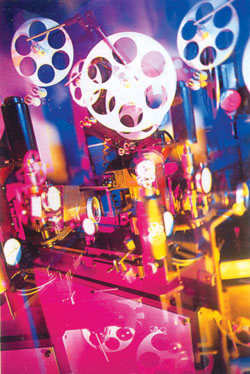 Two words that can be spat out as an insult in polite company are 'politics' and 'bureaucracy'. I dare say their Nepali versions work pretty well as pejoratives too.
Two words that can be spat out as an insult in polite company are 'politics' and 'bureaucracy'. I dare say their Nepali versions work pretty well as pejoratives too.
Ask almost anyone what's wrong at the moment and you'll hear them blame politics and politicians. Many will include bureaucrats and the civil service too. Go to America and you'll find that surveys of popular angst and aversion rank politicians near the bottom, or the top, of the league table of annoying creatures; bureaucrats often finish a close second, especially now at tax time.
But it shouldn't be this way. Politics and bureaucracy are strengths, not weaknesses, of democracy. Without these forces and their practitioners, we are lost, at war, repressed or worse. We are in a state of nature. You could say democratic politics and a functioning civil service are the highest institutional achievement of humankind, if you don't mind the snorts of derision and the laughter that you'll encounter.
Without politicians and their party games, we'd be stuck with fumble-handed royals and sycophantic courtiers to run the country. That has been tried and found to be a comprehensive failure. Army generals might be tempted to step in and impose a little discipline on this rowdy place. They too would leave a bigger mess than they found.
After those right-wing experiments, perhaps the extreme left would have a go, as the Khmer Rouge did in Cambodia. It took more than a million dead Cambodians to prove the utter fallacy and evil of that experiment in efficiency and discipline. Tens of millions died in the various exercises of power in Mao's China. And how about Hitler's Germany for efficiency and apolitical government?
Wait. I hear people from the general direction of the World Bank or the IMF saying that all we need are apolitical technocrats to run the country, get it back on its feet. No politics, a bureaucracy that does what it's told. Or else. Let's see, it's worked in. umm. Bangladesh. Yes, it's working a treat down there with those two dreadful women and their gangs of thugs sidelined and politics on hold while the structural adjustment goes on. Or so some say.
In fact, Bangladeshi technocracy will fail just as surely as its Pakistani or Thai versions will. Not perhaps in spectacular meltdown, but in the continuing inability of the polity and nation to develop resilience, maturity, and capacity. Technocrats should stick to 'techno' and leave the 'crat' to the demos.
Right now things are confusing and frustrating in Nepal-there's political bickering and infighting, and a civil service that's not sure what to do next, except perhaps take another bribe. But a free media reports freely and people know what's going on. The country lurches along, slowly restoring its capacity to survive convulsions and catastrophe from Maoist and royalist depredations. A radical centre is being resuscitated.
Human beings politicise and bureaucratise by nature. They see a problem, they meet and manoeuvre and try to impose systems to resolve disputes and problems. That, or they assemble armies and fight. History tells us which options work best. One of the advantages humans enjoy over other animals is our ability to address problems through politics and resolve them through bureaucracy.
By all means watch the politicos and civil servants like hawks. Pounce on their crimes and demand redress and accountability. Don't trust them. But know that they're the best we can hope for.
In the words of that wily old politician and former bureaucrat, Winston Churchill, "It has been said that democracy is the worst form of government . except (for) all the others."



